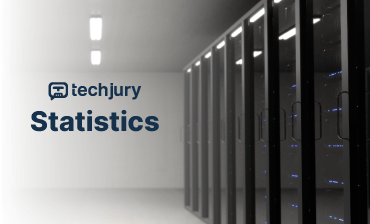Understanding the Data Revolution: More Than Just Numbers
Imagine standing at the edge of an infinite digital landscape, where every click, transaction, and interaction generates invisible trails of information. Welcome to the world of big data—a realm where raw numbers transform into powerful insights that reshape industries, predict human behavior, and unlock unprecedented opportunities.
The Genesis of Big Data: A Historical Perspective
The journey of big data is not a recent phenomenon but a culmination of decades of technological evolution. In the early days of computing, data was a scarce and carefully managed resource. Mainframe computers processed limited information, with storage measured in kilobytes. Fast forward to today, and we‘re generating more data in a single minute than entire organizations produced decades ago.
The exponential growth can be traced through key technological milestones. The advent of the internet in the 1990s marked the first significant data explosion. Search engines like Google began indexing massive amounts of information, creating unprecedented opportunities for data collection and analysis. By the early 2000s, companies like Amazon and Netflix demonstrated how data could be strategically leveraged to personalize user experiences and drive business decisions.
The Technological Infrastructure Powering Big Data
Cloud Computing: The Backbone of Modern Data Management
Cloud computing has revolutionized how organizations store, process, and analyze massive datasets. Traditional on-premise infrastructure struggled with scalability and computational limitations. Cloud platforms like Amazon Web Services, Microsoft Azure, and Google Cloud have democratized advanced data processing capabilities.
Modern cloud architectures enable real-time data processing, machine learning integration, and global accessibility. Companies can now deploy sophisticated data analytics tools without massive upfront infrastructure investments. This technological shift has transformed big data from a luxury to a necessity across industries.
Artificial Intelligence and Machine Learning: Intelligent Data Processing
Artificial intelligence represents the next frontier in big data analytics. Machine learning algorithms can now process complex datasets, identifying patterns and generating predictive models with remarkable accuracy. These technologies go beyond simple data interpretation, offering intelligent insights that drive strategic decision-making.
For instance, financial institutions use machine learning to detect fraudulent transactions in milliseconds, analyzing thousands of variables simultaneously. Healthcare providers leverage AI to predict potential disease outbreaks and personalize treatment plans based on complex patient data.
Industry Transformations: Big Data in Action
Healthcare: Predictive Medicine and Patient Care
In healthcare, big data is nothing short of revolutionary. Hospitals and research institutions now collect and analyze patient data from multiple sources—electronic health records, genetic information, wearable devices, and clinical research databases.
Consider how predictive analytics can identify potential health risks before they manifest. By analyzing genetic markers, lifestyle data, and historical health information, healthcare providers can develop personalized prevention strategies. This approach shifts medical practice from reactive treatment to proactive health management.
Financial Services: Risk Management and Personalization
The financial sector has been a early adopter of big data technologies. Banks and investment firms use sophisticated algorithms to assess credit risks, detect fraudulent activities, and develop personalized financial products.
Machine learning models can now evaluate loan applications by analyzing hundreds of data points, including social media presence, transaction history, and macroeconomic trends. This approach provides more nuanced risk assessment compared to traditional credit scoring methods.
Global Market Dynamics and Economic Impact
The Economic Value of Data
By 2025, the global big data market is projected to reach [268.4 billion] with a compound annual growth rate of 12%. This isn‘t just a technological trend—it represents a fundamental economic transformation. Companies that effectively leverage data gain significant competitive advantages.
Organizations investing in data analytics report:
- 15-20% improved operational efficiency
- Enhanced customer experience
- More accurate strategic planning
- Reduced operational costs
Ethical Considerations and Privacy Challenges
As data collection capabilities expand, ethical considerations become paramount. The balance between technological innovation and individual privacy rights remains a critical challenge. Regulatory frameworks like GDPR in Europe and emerging global data protection laws demonstrate the growing importance of responsible data management.
Responsible Data Governance
Organizations must develop comprehensive data governance strategies that:
- Ensure transparent data collection practices
- Protect individual privacy
- Implement robust cybersecurity measures
- Maintain ethical data usage standards
Future Predictions: The Next Frontier of Big Data
Emerging Technologies on the Horizon
The future of big data lies in technologies like quantum computing, edge computing, and advanced AI integration. These innovations will enable:
- Faster data processing
- More complex predictive models
- Enhanced real-time decision-making capabilities
- Unprecedented computational power
Practical Implementation Strategies
For organizations looking to leverage big data effectively, consider these strategic approaches:
- Develop a comprehensive data strategy
- Invest in skilled data professionals
- Implement robust technological infrastructure
- Foster a data-driven organizational culture
- Continuously update technological capabilities
Conclusion: Embracing the Data-Driven Future
Big data is more than a technological trend—it‘s a fundamental reimagining of how we understand information, make decisions, and solve complex challenges. As we stand on the cusp of unprecedented technological transformation, those who can effectively harness data will lead the way in innovation, efficiency, and strategic thinking.
The data revolution is here. Are you ready to be part of it?
